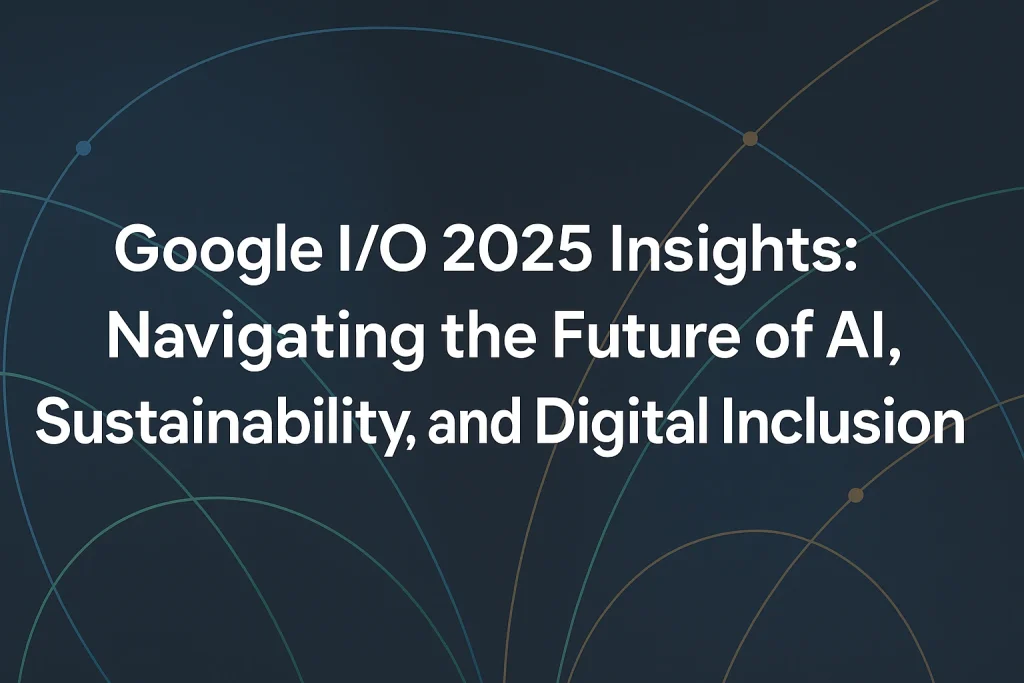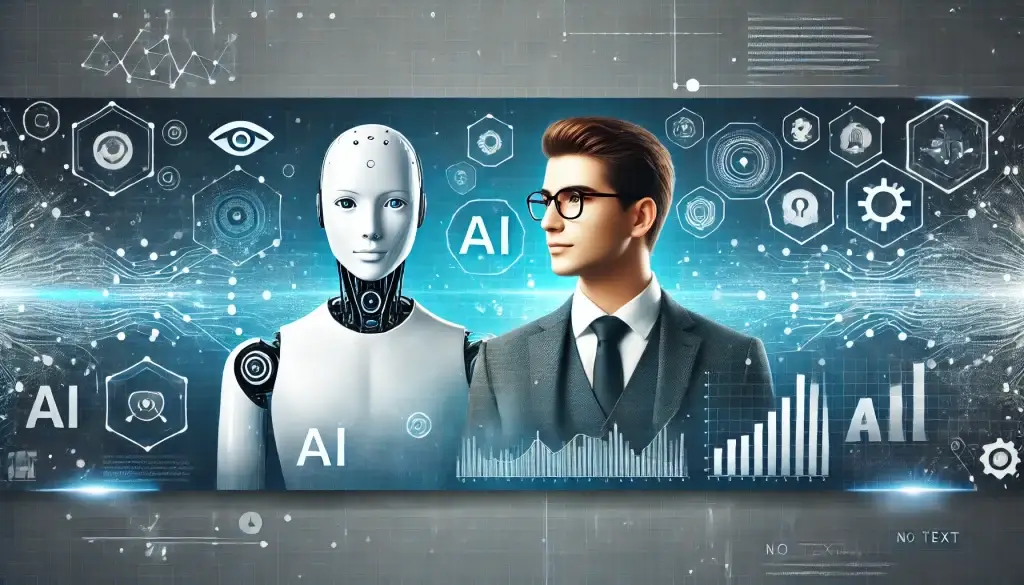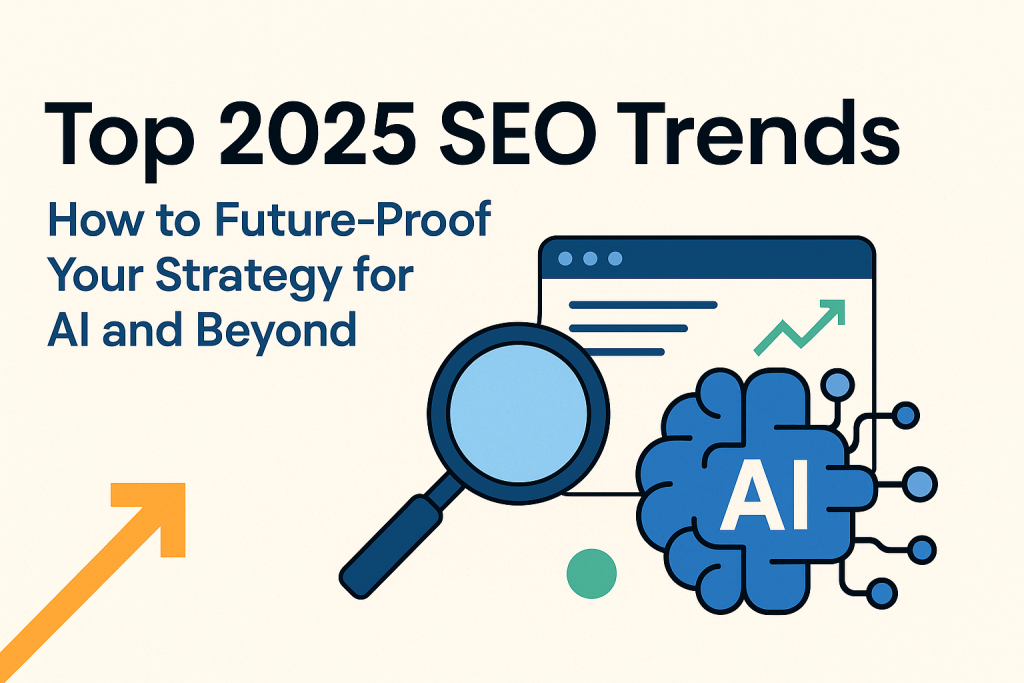Recently, I had the chance to watch the Google I/O 2025 keynote live — an event that delivered much more than just new product announcements. This keynote was a thoughtful exploration of how technology is evolving and the responsibilities that come with it. It painted a vivid picture of the future shaped by advances in Artificial Intelligence (AI), an urgent focus on sustainability, and a renewed commitment to digital inclusion.
As a technology enthusiast deeply interested in the broader impact of innovation, I want to share my personal reflections on the themes and messages from this important event. Google’s vision for 2025 highlights both immense opportunities and serious challenges that require our collective attention.
The Transformative Power of Artificial Intelligence
One of the most impressive aspects of the Google I/O 2025 keynote was the emphasis on the rapid evolution of Artificial Intelligence. AI has moved from being a niche research topic to becoming a fundamental technology embedded in countless aspects of daily life.
Google unveiled new AI models and tools designed to be more intuitive, context-aware, and human-like in understanding. From AI assistants that can engage in complex conversations and offer tailored recommendations to generative AI capable of producing creative content, code, and analytical insights, the possibilities seem limitless.
Opportunities Unlocked by AI
The potential benefits of AI were front and center. For businesses, AI-powered automation can handle repetitive tasks, analyze large datasets quickly, and enable smarter decision-making. In education, AI tutors can personalize learning experiences, adapt to individual needs, and help overcome barriers related to language and accessibility.
Healthcare also stands to gain tremendously. AI can assist in diagnostics, patient monitoring, and even drug discovery, potentially transforming medical outcomes worldwide.
For developing countries and underserved communities, AI tools can provide scalable solutions to resource constraints, helping improve access to education, healthcare, and economic opportunities.
Ethical and Social Challenges
However, the keynote didn’t shy away from the ethical and societal challenges that come with AI proliferation. Privacy concerns are paramount — as AI systems rely on vast amounts of personal data, ensuring this data is protected is critical.
Bias in AI models was another important topic. Since AI systems learn from historical data, they can inadvertently reinforce existing prejudices, creating unfair or harmful outcomes. The challenge of job displacement due to automation also looms large.
Google’s commitment to “responsible AI” development, including transparency and fairness, was reassuring. But it’s clear that ongoing vigilance, robust regulation, and cross-industry cooperation are essential to harness AI’s benefits while mitigating its risks.
Sustainability as a Core Tech Imperative
The Google I/O keynote made a powerful statement on sustainability, reflecting how the tech industry is evolving to meet its environmental responsibilities.
Google outlined ambitious plans to achieve carbon neutrality throughout its supply chain and data centers, invest in renewable energy, and design products with sustainability in mind. This includes AI models optimized for lower energy consumption and hardware built with recyclable materials.
Moving Beyond Buzzwords
While many companies make green claims, what impressed me was Google’s holistic approach — embedding sustainability into product design, operations, and partnerships. For instance, designing AI algorithms that consume less energy directly addresses the environmental impact of large-scale computing.
The transparency in reporting carbon footprints and progress toward renewable energy adoption also suggests a commitment to measurable change rather than just marketing.
Why It Matters
Climate change is a defining challenge of our era. The technology sector, with its massive data centers and electronic waste, has a significant environmental footprint. Leaders like Google demonstrating sustainable innovation could set industry standards and inspire others to follow.
From a personal standpoint, seeing sustainability as a core value in technology development is encouraging. It means future innovations may be smarter and greener, helping to reduce humanity’s environmental impact.
Bridging the Digital Divide: Inclusion and Accessibility
Another critical topic was digital inclusion — making sure emerging technologies benefit everyone, not just those in well-connected urban centers.
Google highlighted initiatives aimed at expanding affordable internet access in remote and underserved areas. They also focused on improving digital literacy and localizing AI services to work in diverse languages and cultural contexts.
The Impact of Digital Inclusion
This is particularly important for countries like the Philippines, where internet access gaps remain a barrier to education, jobs, and healthcare. Affordable, reliable connectivity can transform communities, offering access to information, services, and global opportunities.
Localizing AI to understand regional languages and dialects is also a game-changer. It allows people who don’t speak major global languages to interact naturally with technology, breaking down barriers to access.
Why This Matters to Me
As someone who values equitable access to technology, I found this part of the keynote especially meaningful. The future of innovation should not deepen existing inequalities but strive to close gaps — whether economic, geographic, or linguistic.
Ensuring that everyone has the tools to participate in the digital world is essential for social progress and economic development.
Balancing Enthusiasm with Responsibility
Watching Google I/O 2025 left me both excited and thoughtful. The pace of technological change is breathtaking, with AI advancements unfolding rapidly, sustainability becoming a business imperative, and efforts toward inclusion gaining momentum.
Yet, with great opportunity come great responsibilities. The keynote felt like a call to action for developers, companies, policymakers, and users alike to approach the future thoughtfully. Innovation should be guided by ethical principles, respect for privacy, and a commitment to reducing inequalities.
We cannot afford complacency. The choices made now will shape how technology impacts society for decades to come.
Final Reflections: Shaping a Future Worth Embracing
Google I/O 2025 was not just about new products; it was a vision for a future where technology empowers humanity while respecting the planet and promoting fairness.
The advancements in AI are astonishing, but they must be tempered with ethical vigilance. Sustainability is no longer optional — it’s an urgent mandate that requires concrete action. Digital inclusion is key to ensuring the benefits of technology reach all corners of the globe.
As we move forward, these three pillars — innovation, responsibility, and inclusion — must remain central.
For me, this keynote was a reminder that technology’s future is not predetermined. It is something we shape with our choices and values. If approached wisely, the next decade can be a time of unprecedented progress and opportunity for all.



